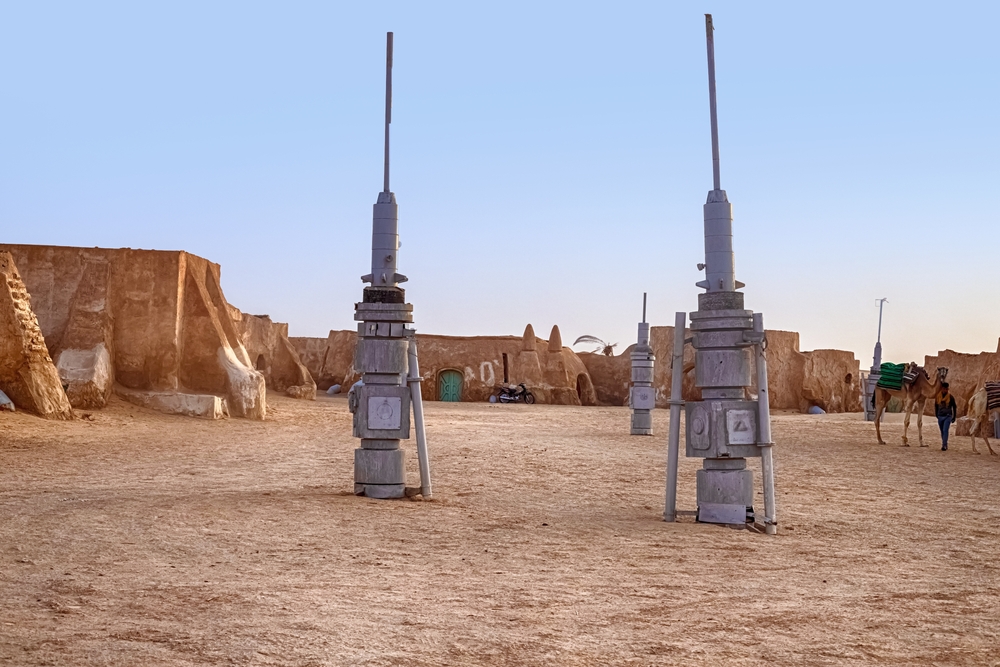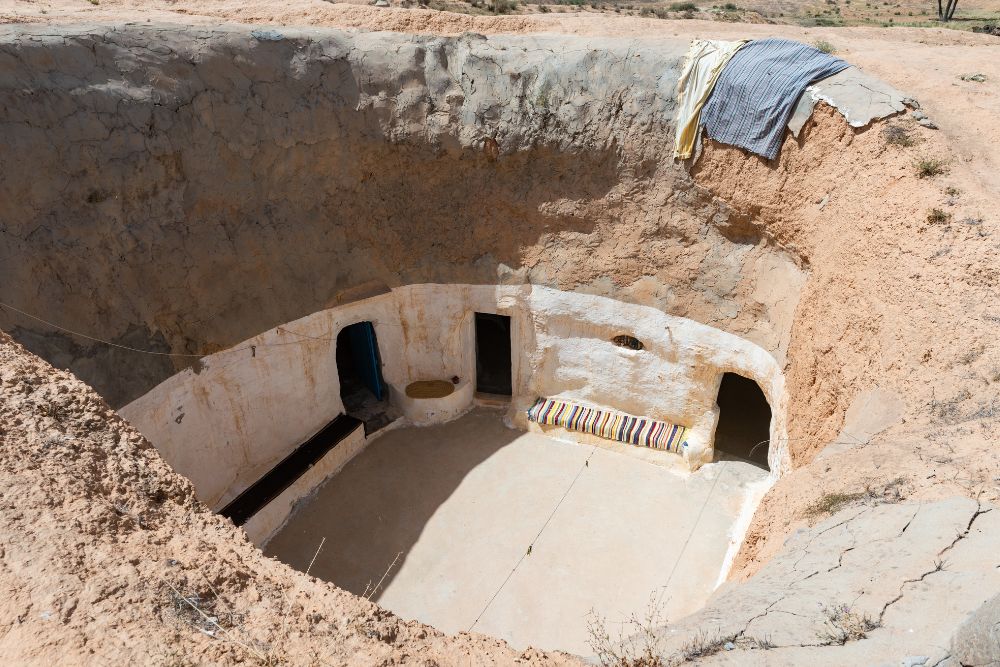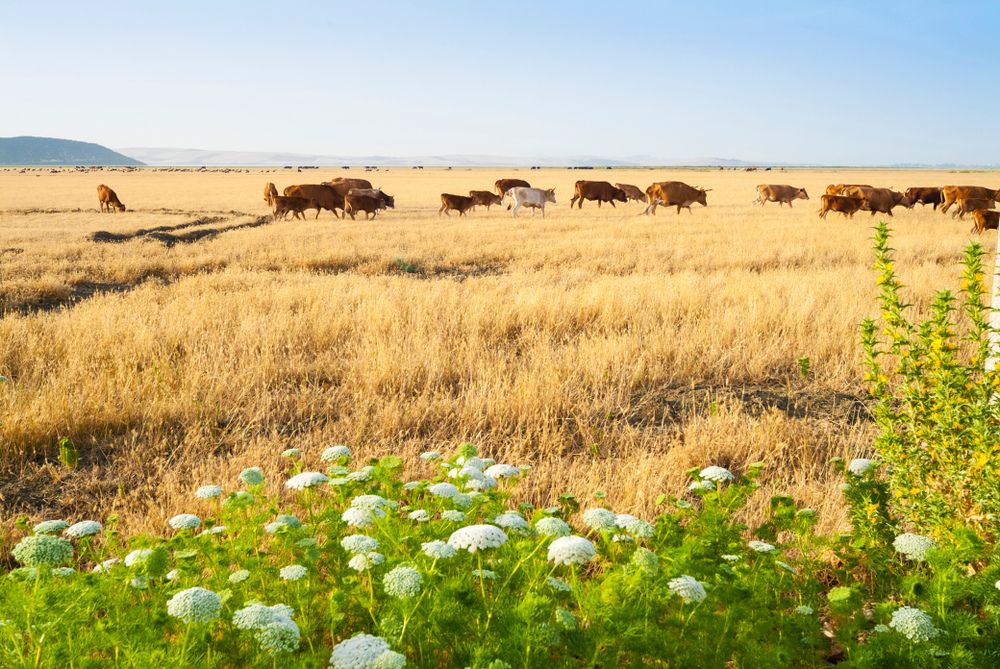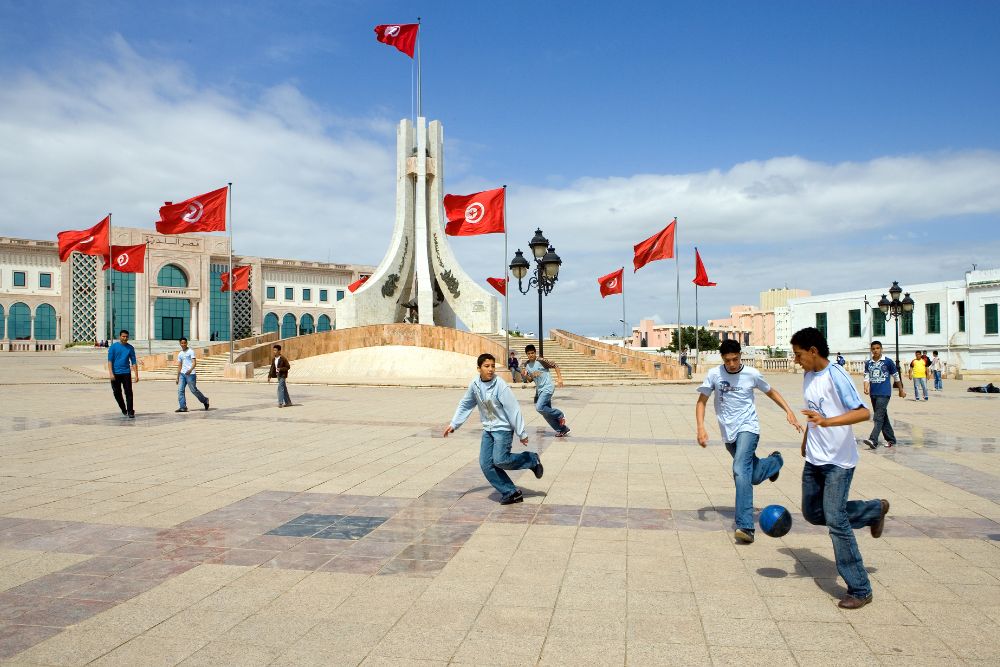Tunisia is the land of ancient Roman ruins paired with eye-catching buildings and insightful museums.
Tunisian coast welcomes many tourists throughout the year for its beauty and soothing breeze. And unlike most Islamic countries, Tunisia respects women’s rights.
If these fun facts about Tunisia made you appreciate this country, then I’ve rounded up another 13 for you…
1. Many Parts Of The Star Wars Movies Were Filmed In Tunisia
Every Star Wars movie, except the “Episode V: The Empire Strikes Back”, had scenes filmed across different regions of Tunisia.

Some notable destinations where the scenes were filmed are, Medenine, Matmata, Djerba and Tatouine, given their martian-like landscapes. Access to these locations is certainly possible for movie buffs, but you’ll need to ride or drive there since public transport is non-existent.
2. Women Have The Right To Inherit Land From Their Parents Or Families
In Tunisia, women have the right to inherit land from their parents or families. They also have the right to pass their names and nationalities to their offspring. Both laws were introduced in 1956 by President Habib Bourguiba.
3. Most Tunisia’s Land Is Used For Agricultural Practices
In 2020, according to the World Bank, Tunisia reported that around 62.64% of their country’s land is used for agriculture. Tunisia famously grows potatoes, tomatoes, fruit, olives, and dates, while famers also raise sheep, cattle, and chicken for meat.
4. UNESCO Highlights Tunisia’s Commitment To Education
Tunisia spent around 6-7.3% of the country’s GDP on education between 2012-2021. Due to varying challenges, the education expenditure in Tunisia decreased slightly to 4.6% GDP in 2018.
5. Home To The Fourth Most Important Islamic City In The World
Kairouan of Tunisia stands as the 4th most important Muslim city in the world, with Mecca, Medina, and Jerusalem ranked above it.
Uqba Ibn Nafi established Kairouan in the year 670 AD. The city is home to the holy Ugba mosque, also known as the Great Mosque of Kairouan.
Kairouan, the city as a whole, is also a UNESCO World Heritage Site. All Islamic teachings, scholarships, and other religious activities are executed in Kairouan.
6. Tunisia People in Matmata Prefer Living Underground
Matmata is a very small town in Tunisia, home to Berber-speaking citizens, and Star Wars figures certainly don’t live here! These underground houses were earlier used for tackling the summer heat and the hot winds from the Sahara Desert.

Today, most Tunisians build their houses above the ground, except the people of Matmata. They prefer to live in underground homes that are naturally cooled.
7. Tunisia Has Had Just 5 Presidents Since 1957
The first president was appointed to Tunisia in 1957 by President Bourguiba. After him, Ben Ali came into power in 1987 and remained president until 2011.
President Fouad Mebazza then took over the mantle and held the office only for a few months in 2011, until December. Moncef Marzouki then took over while the country was implementing a new constitution. He served the country till 2014, after which the current President, Beji Caid Essebsi, came into power.
8. Home To 8 UNESCO World Heritage Sites
Tunisia’s list including cultural and natural sites, plus numerous other sites have been nominated for UNESCO’s tentative list, so this list may expand.
Currently, Tunisia’s UNESCO World Heritage Sites are:
- Amphitheater of El Jem
- Dougga or Thugga
- Medina of Sousse
- Medina of Tunis
- Ichkeul National Park
- Archaeological Site of Carthage
- Kairouan
- Punic town, Kerkuane, and its Necropolis
9. People Wear Red To Mourn The Lost Souls In Tunisia
Unlike Western culture, where people wear black to funerals, people of Tunisia, Ghana, and South Africa prefer wearing red, as it symbolizes the color of mourning. Several other countries such as Myanmar, Iran, and Thailand have different mourning colors too.
10. Jasmine Is The National Flower Of Tunisia
While jasmine was not native to Tunisia as it was brought to the country by Andalusians in the 16th century, it is still considered the national flower.
The flower has some significance in the country as a sign language. For instance, a man wearing jasmine on the left ear indicates that he is single.
Additionally, offering white jasmine to anyone in the country is considered an act of love. However, offering an odorless jasmine to someone indicates insolence.
11. Tunisia Is The Country With 17 National Parks
Despite being so arid, Tunisia has 17 national parks, with the most famous of them being Ichkeul National Park, which is also a World Heritage Site.

This park witnesses large-scale bird migrations, which include ducks, geese, storks, flamingos and numerous other bird species.
12. Tunisia Once Had A Long Stretched Lake In The Country
Tunisia once had a lake that stretched from Ichkeul to North Africa, but now only exists only in Ichkeul.
13. Polygamy Is Considered Illegal In Tunisia
Polygamy (marrying more than one woman) is strictly prohibited under the family laws of Tunisia. As the country supports women’s rights, this is something that they strongly enforce.
Men must formally divorce before marrying their next wife and this rule was primarily made for the welfare of women. Likewise, if a woman violates this rule, then the punishment is identical.

